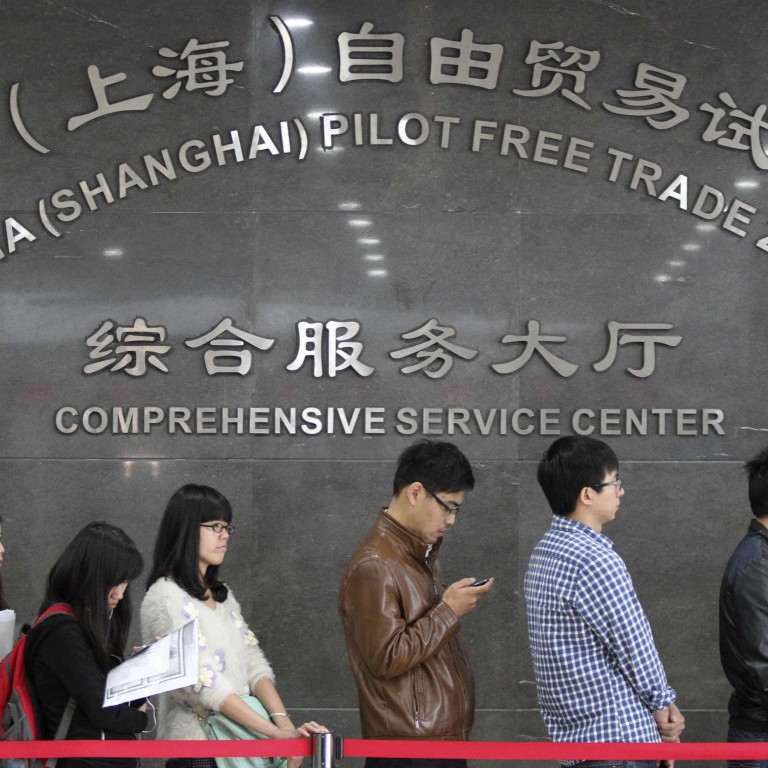
China's push to strengthen its SMEs is gaining momentum
Dan Steinbock says the health of the overall economy depends on a thriving entrepreneurial spirit
China is not known for its resilient small- and medium-sized enterprises - yet. Still, for July, the SMEs' PMI figure, which serves as an important indicator of the manufacturing sector, suggests that China's internal economic growth is gaining momentum. It surpassed the 50 threshold for the first time since April 2012.
These gains reflect a strong policy momentum by the central government to boost the role of SMEs in the Chinese economy.
Recently, Premier Li Keqiang noted that 1.68 million businesses were registered nationwide in the first half of the year, up almost 60 per cent year on year. Among them, almost 1.58 million were private businesses, which provided more than 10 million jobs.
Li's message on SMEs was clear: it is a great start, but much more remains to be done.
Unlike their predecessors, the new Chinese leadership knows only too well that SMEs are the true growth engine in most economies. Ever since the leadership transition, Li and his reformers have paid increasing attention to the Chinese business environment, SMEs and entrepreneurship.
Last autumn, the launch of the Shanghai free trade zone allowed SMEs in the city to enjoy a wider range of opportunities to upgrade and transform their industrial structures. In the past, many of these SMEs have been labour intensive, focusing on manufacturing. In the future, they hope to become more capital intensive, focusing on product quality and design.
The Shanghai free trade zone is just one initiative in the broad front of economic reforms that are creating new momentum across the mainland.
Late last month, Li criticised banks for only issuing large loans to big businesses. In turn, the State Council noted that many small Chinese companies continue to face financing challenges, which could fuel economic risk.
The push to strengthen SMEs is something new in the Chinese economy. But what is the role of the Chinese business environment, SMEs and entrepreneurship internationally?
The World Bank's "Doing Business" report measures the costs to firms of business regulations worldwide. The best performers feature Asia's tiger economies, such as Singapore and Hong Kong, the top two. China, at 96th, has steadily improved its position.
However, taking into account that it ranks 29th in the World Economic Forum's Global Competitiveness Report, but only 96th in the World Bank report, much remains to be done to improve the Chinese business environment.
So, just how entrepreneurial is China?
According to the Global Entrepreneurship Monitor, Chinese companies see themselves as close to average in "perceived opportunities" and "entrepreneurial intentions". Conversely, they perceive themselves as significantly weaker than average in their "fear of failure", "entrepreneurship as a good career choice", and "high status to successful entrepreneurs".
These characteristics are not unique to China. Historically, such results have been typical for many industrialising economies in which the state has played a significant role, such as the French dirigisme, German planning and Japanese developmentalism.
Typically, these nations have all moved towards greater liberalisation, including Germany's companies, France's privatisation of state-owned enterprises and Shinzo Abe's proposed structural reforms in Japan.
While popular perceptions of Chinese entrepreneurship still tend to be low, both domestically and internationally, there is no reason why Chinese SMEs cannot thrive. In fact, they already play a big role in exports.
Earlier this decade, foreign multinationals and Chinese state-owned enterprises still accounted for 55 per cent and 15 per cent respectively of total exports. At the same time, SMEs accounted for about 30 per cent of the total.
In some ways, these SMEs may actually be better positioned to succeed than their counterparts in other regions - given the world's largest marketplace, advanced infrastructure, the presence of highly competitive foreign multinationals and an upgraded business environment.
In order to realise its full potential, China needs to boost its SMEs, including micro firms. Typically, SMEs employ more people than large capital-intensive corporations.
In China, innovation has taken off in foreign multinationals and Chinese state-owned enterprises, but over time it is likely to accelerate in these smaller firms.
It is the SMEs that make or break national economies and individual dreams. In order to realise the Chinese dream, China needs a thriving SME sector.

